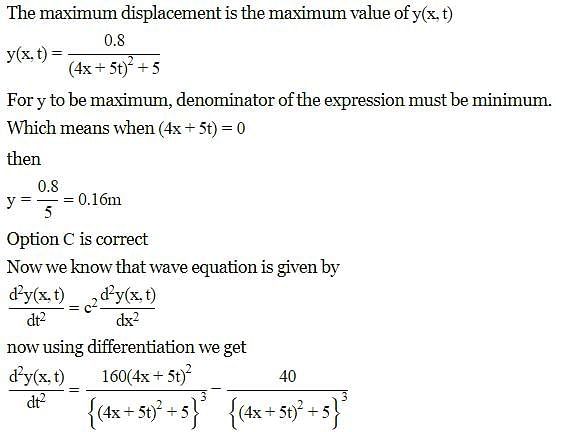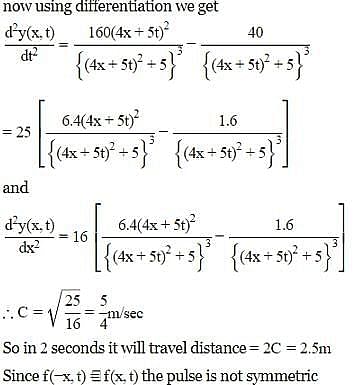Test: Behavior of Progressive Waves - JEE MCQ
10 Questions MCQ Test Physics for JEE Main & Advanced - Test: Behavior of Progressive Waves
As a wave propagates; which of the following is not satisfied?
The disc of a siren containing 60 holes rotates at a constant speed of 360 rpm. The emitted sound is in unison with a tuning fork of frequency.
| 1 Crore+ students have signed up on EduRev. Have you? Download the App |
The speed of transverse waves in a string depends on:
Speed of the sound in a perfectly rigid rod would be
Which instrument work on the basis of reflection of sound waves?
Properties of a kind of wave are given below. Identify the type of wave
i. Wave can not be detected by human ear
ii. Velocity of wave in free space is 3x108m/s
iii. Velocity is not effected by temperature
iv. Waves can travel through vacuum
y(x,t) = 0.8/[(4x+5t)2+5] represents a moving pulse, where x and y are in meter and t in second. Then
The speed of transverse waves on a string depends upon
|
289 videos|635 docs|179 tests
|
|
289 videos|635 docs|179 tests
|



















